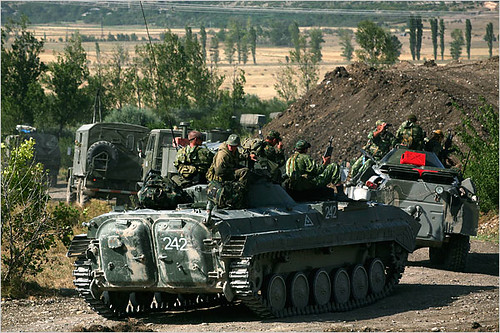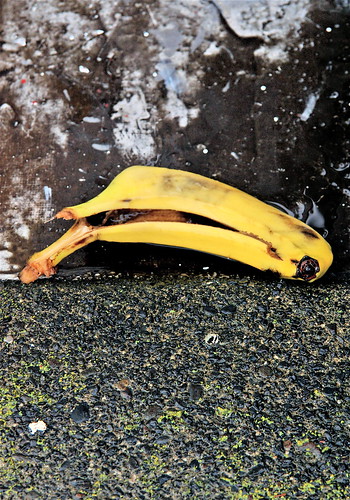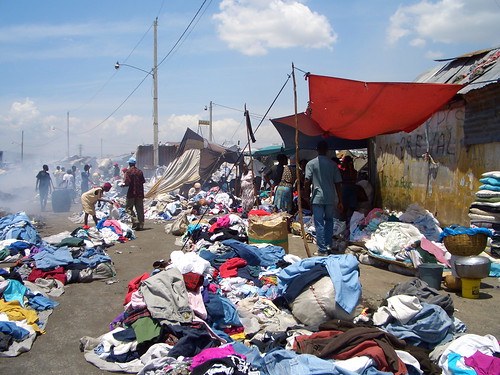The Hauser Center has a great blog post on where to give to help victims of Gustav. It advocates for thoughtful giving to local groups, with which I wholeheartedly agree.
good giving
How to help in Georgia
Georgia is a developing country, but not among the poorest of the poor. It’s not Haiti or Bangladesh. Therefore, the displaced persons who fled probably have some level of savings, and left with some household items. They’re not going to be at immediate risk for starvation, but things will get very tough for displaced persons in about a month. After that, the major risk is winter. Cold weather in the Caucasus is extremely cold, and displaced persons are likely to be in inadequate housing without the funds to pay for heating fuel or the clothes and blankets needed to keep warm.
If you want to provide help to displaced persons, I offer the same advice I always do. Find an NGO that already operates in the region. I suggest CARE, which has been in Georgia for about 15 years, and CHF, which also has an established presence. Give to the organization’s general fund, so your funds will be used as effectively as possible.
You may also want to think about other victims of the crisis. Consider supporting groups who assist and protect ethnic Georgians in Russia, and ethnic Russians in Georgia. By all accounts, the nationalism is getting ugly on both sides, and resident minorities will be at risk. I suggest supporting the Open Society Institute’s (OSI) Russia organization to help ethnic Georgians in Russia and OSI’s Georgian arm for the inverse.
Lastly, I suggest supporting civil society, human rights, and independent media in both countries. Democracies don’t go to war like this.
Photo: Joao Silva for The New York Times
Keep your banana to yourself
I read a blog post tonight about giving to beggars in India. The writer said that if you give them food instead of money, they will sell it back to shopkeepers to money. If you give them a banana, you need to peel it or they’ll sell it for the cash.
You know what? Once you’re at a place where you want to help people, if they ask you for money, give them money. Don’t give them the banana. Poor people are not stupid. They’re just poor. They know what their needs are better than you do. Respect that.
I know there are reasons – drug addiction, cultural pressure, poor organizational skills – that people will act against their own self interest. None of that is easily analyzed in the time it takes to give to a beggar on the street. Most of the time, people know what they need. If you are engaged in an act of charity, give that to them, not what you think they ought to need.
Street corner giving is not about sustainability, development, or creating long-term change. Instead, it’s a recognition of our common humanity, of the crap shoot that decides who gives and who receives. It’s reaching out to those who ask because it’s not our place to judge.
It’s really pretty unlikely that you are a donor instead of a beggar because you’re smarter, stronger, or wiser. Probably, you just got lucky and were born in the developed world, and the 20-year old in front of you knows more about street survival than you could ever imagine. Keep your banana to yourself, and hand over the cash.
Things I don’t believe in #10 – Donating stuff instead of money
Give money. Don’t send food, bottled water, clothing or useful-seeming stuff. Give money.
Your old stuff costs money to ship. It is almost always cheaper to just buy it in country, and doing it that way benefits the local economy. It’s also more respectful to survivors of humanitarian emergencies, and allows relief agencies to procure exactly what is needed instead of struggling to find a use for randomly selected used junk. Disaster News Network talks about the used clothes problem in “The Trouble with Trousers.” which features a really depressing anecdote about Hurricane Hugo.
Your food costs money to ship, too. It is probably not food anyone in the recipient area would recognize. How exactly will the people of Burma know what to do with canned refried beans or artichoke hearts? Sending donated American food doesn’t drive income to local farmers or help local retailers start selling again. Buying in-country gets food people will actually understand how to cook and supports the local economy.
Here’s another example – some people wanted to send their old tents to China to house earthquake survivors. A sweet idea – provide quick, free housing. But every different kind of tent would have different set-up instructions, and how many people save their tent instructions once they’ve learned how to do it? It would take a huge time investment in figuring out each type of tent, and then training for the people in China who had to set up the tents. All of this time translates to a delay in providing housing, and it’s time used by paid staff, which means it is also squandered money.
Interaction, the coalition of disaster-relief NGOs, has a nice piece about why cash donations are most effective. They mention needs-based procurement, efficient delivery, lower costs, economic support, and cultural and environmental appropriateness as advantages of cash. World Volunteer Web has a good explanation too, breaking down the myths about post-disaster aid.
Usually people end these kinds of articles with links to the three or so places who will take your old clothes and possessions for international donation. I am not going to do it. Don’t waste everyone’s effort that way. Give your old stuff to Goodwill, the Salvation Army, or St. Vincent de Paul; they’ll make the best use of it. They’ll sell your things locally and use the money for their charitable purposes.
Giving stuff instead of money is easy for you, it’s cheaper for you, and it’s quick. It is not quick, easy, or affordable for the NGOs who are actually trying to help people.
If you want to help, give money.
[Picture of old clothes in Haiti from Flickr by Vanessa Bertozzi]
tiny Burma update
How to give to Burma
100,000 people may have died in Burma. The survivors need our help.
After the attention engendered by my last post, I did some googling for options on how best to give to victims of Cyclone Nargis in Burma. Here are the three organizations I recommend:
1) The International Burmese Monks Organization. The were founded in October 2007 by Burmese monks in exile. It’s a new group, but deeply rooted in Burma. They may not be able to do fascinating and innovative aid programs, but they will be able to move money and food to people who need it. You can donate at Avaaz.
2) Save the Children. They have been in country for more than a decade, and they are a deeply experienced relief and development agency. They are very professional, and they are good at linking their relief work to long-term development needs. Donate here.
3) World Vision. Another very professional organization, who have been in Burma since 1958. They are deeply Christian. This does not affect who they provide services to, but it does affect their hiring. If you are uncomfortable with that, give to Save the Children instead. Donate to World Vision here.
When you donate, please consider giving to the organization’s general fund instead of limiting your donation to Burma. Relief agencies are already responding to the cyclone, and they are doing that using their own general funds; nobody has enough Burma-specific donations yet. Without unrestricted donations, they would not be able to buy supplies and hire their response staff.
If you give to the unrestricted fund, you’ll help Burma now and help prepare for other emergencies in the future.
Why I am not giving to Myanmar yet (and some thoughts on social media)
Beth Kanter is one of my heroes and she’s one of the reasons I am on Twitter. Today she asked me to blog or tweet about the BlogHer Myanmar giving effort. And I didn’t. And I felt like a total jerk because, dude, it’s BETH KANTER. And she’s amazing.
But it’s too soon for me to give any money, or ask others to do so. Global Giving has not chosen a recipient yet for Myanmar funds. If you look at their Myanmar page, there is no recipient listed. I confirmed by calling them. Eventually they’ll pick out a recipient organization who’ll provide aid to Myanmar, but there is no chosen organization yet. If I give now, my money will just sit with Global Giving. I might as well have it sit with me while I review NGOs and not pay the 10% fee to Global Giving.
There is another reason not to give money too soon. Some disaster relief NGOs will collect money for an emergency in a location where they have no established presence and if they receive enough, they will start an operation there. If they don’t receive enough money, they’ll just donate the money to another NGO. (Usually after taking their own overhead). It’s a pretty standard practice. If you go to the list of NGOs accepting donations for Myanmar, you’ll see that many of them have no current presence on the ground.
So, by donating now I am at risk for moving it through two pass-throughs – Global Giving and a second NGO before it goes to a group which is operational in Myanmar. (To be fair, I don’t know what Global Giving’s rules are – they may not allow a non-operational organization to receive money. Their website doesn’t make it clear.) [Edited to add: The COO of Global Giving commented on this post, and linked to their due diligence policy, which explains their criteria for selecting organizational partners.]
The best way to give, in my opinion, is to check out NGO websites until you find one that already has a presence in Myanmar, and give to them. I suggest World Vision. Yes, they are faith-based to a somewhat creepy degree, but they have been in Burma since 1958. I’ve worked with them in several locations, and they are very professional and run excellent programs.
(Oh, and here’s my social media thought: turning down a request like Beth’s from someone you respect is nearly impossible. I have work to do tonight, but I had to put this blog post up first, just to live with myself.)



